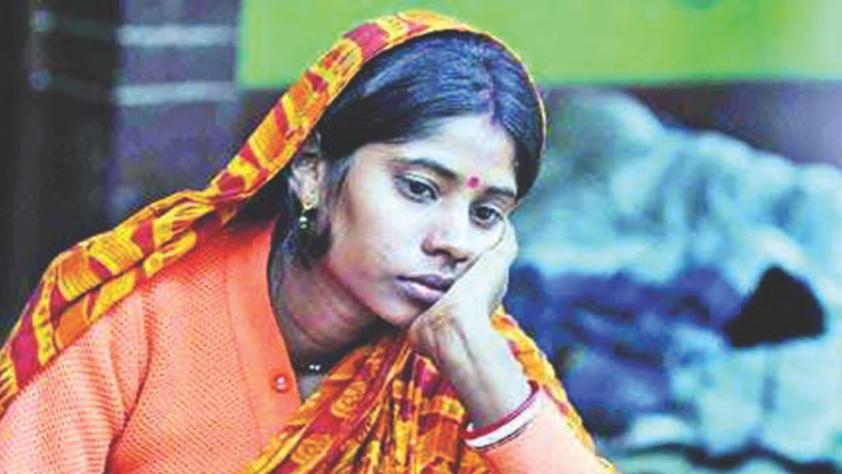Last year, I came across an article called, “The Plight of Hindu Girls in Bangladesh” that raised a few concerns. As a Hindu girl born with education and privilege, I wanted to raise the issue to a bigger audience. The author, who went through cruel experiences as a married Hindu girl in Bangladesh posed the question to the members of our society about whether the injustices on Hindu girls would ever stop in our country. I consider this my support to her outcry and an address to the countless girls in Bangladesh who happen to belong to the religious and ethnic minorities in Bangladesh.
Firstly, according to Hindu law, daughters have absolutely no inheritance rights from the father. When a girl gets married, she is ritually transferred to her husband’s gotra and is not entitled to any inheritance from her husband’s property either. After marriage, she is entitled to neither her father nor her husband’s property. In practice, women without any proper education and who is not encouraged to live independently and lacking any property inheritance faces a battlefield to survive and is often stigmatised. If a father refuses to give his daughter property rights, it can be said he has refused her as a child. If a son’s importance can be recognised through property, a daughter’s should be the same. However, Hindu practices differ in Bangladesh.
Secondly, Hindu law is not legally restrictive on polygamy of men and there is no consideration of the protection of the first wife. There is no mandatory registration, therefore, a man can marry multiple times without taking any responsibility and prosecution becomes extremely difficult and reliant on evidence and witnesses. Domestic violence and limited education for girls are extremely common even in educated families where the boy’s education is always given priority. Thirdly, the laws practised by the Hindu community in Bangladesh not only affects the Hindus living in the country but also all the religious minorities taking into account the Christians, the Buddhists and the Tribals. Therefore, I reiterate the importance of reforming the backdated Hindu laws that are practised in Bangladesh.
The origin of Hindu marriage can be traced back to the ancient scriptures of Rig Vedas and its rituals to the Sanatana Dharma is a scared communion of informed decision as opposed to practice. The Hindu law is also not a derivative of any religious law like Islam. India has reformed the backdated Hindu practices which are symptomatic of patriarchal roots. Arguably the phenotypic patriarchal practices such as the parda have Islamic and Western influences due to the Islamic invasion and the emergence of the Portuguese and the British. Ancient Indian women were almost never recorded to follow this tradition. Therefore, the patriarchal practices such as polygamy have been outlawed by India and reformed property rights of daughters. If Hindu law practices in Bangladesh are compared with the prevalent Sharia’h principles, it is seen that Muslim girls exercise a well-established practice of property rights from the father and a segment of the husband’s. In terms of polygamy, a man is restricted to marry more than four wives.
Marriages in Bangladesh still take place without consent where consent is coerced with emotional blackmail and remains a complex area for prosecution, especially in urban societies. Other associated issues involve family members discouraging the prosecution against domestic violence. Girls are brought up in our country with the implied mentality that it is usual for men to have extra-marital affairs, be unfaithful and to hit girls. The author in the article spoke about marital rape which is prohibited in Bangladesh but is recurring.
Divorce is not encouraged and decisions to live independently and to think independently is highly demoralised. Furthermore, there is no formal procedure for divorce in Hindu law. Interestingly enough, individuals who engage in this kind of behaviour are actually educated and prominent members of the community. Independent girls or girls marrying out of religion or doing anything that are not supported by the community is heavily stigmatised. Polygamy is a common practice among Hindu men in Bangladesh and there are no legal implications for that. Even if Hindu law requires the husband to take care of the well-being of the wife, it is a route that is rarely taken, mostly because there is no way to prove whether care has been taken by the husband or not. It is not mandatory for Hindu marriages to be registered. When the Government tried to enforce the mandatory registration of Hindu marriages, Hiren Biswas, the President of the Samaj Sangskar Parishad retaliated it. The Hindu Marriage Registration Bill 2012 was opposed by the Hindu community. However, the decision-makers were male. Hindu women were not consulted about the changes they desire to have implemented.
The writer is Barrister-at-Law.






